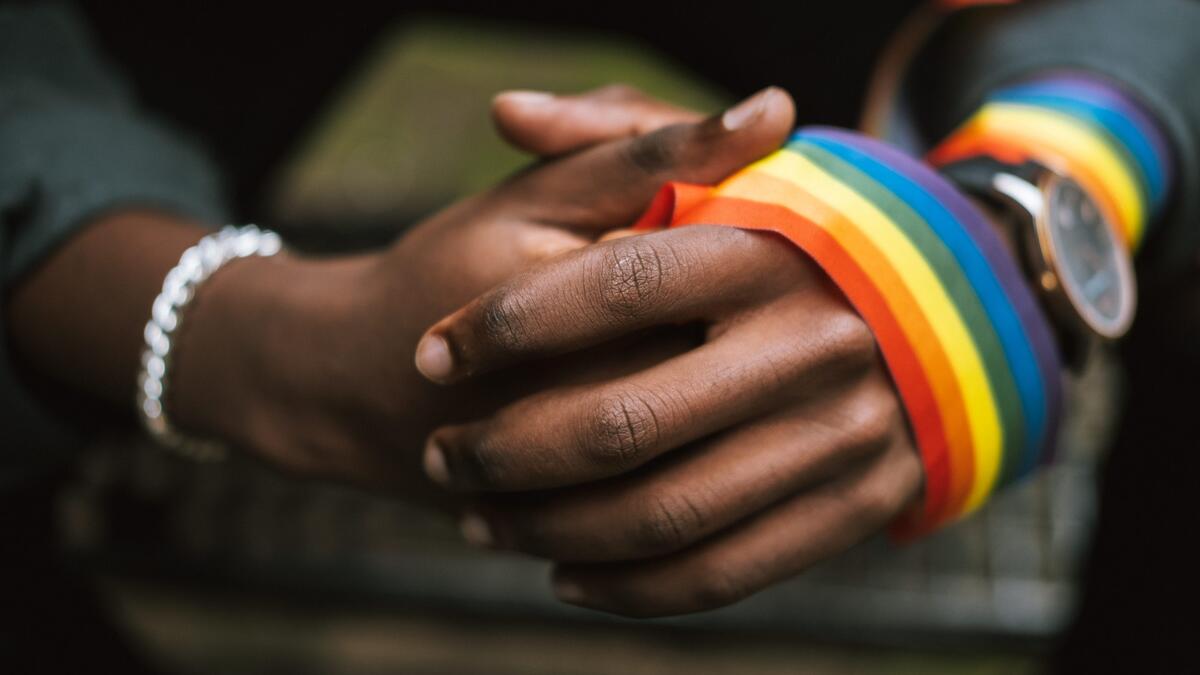Black History Month is a celebration. But it’s also a time for awareness and education.
That’s the focus of the "Symposium on Rhetorics of Gendered Anti-Blackness and Sexuality" being held Thursday, Feb. 10, by Arizona State University’s School of Social Transformation.
“As we celebrate Black History Month, we must highlight, embrace and affirm all of gender and sexual diversity within global Black communities as a form of collective action against anti-Black racism and white supremacy,” said Marlon Bailey, an associate professor of women and gender studies, African and African American studies, and American studies at ASU. “And this program will inform students, faculty and community members about the richness of Black people historically and today. Knowledge is a key to liberation.”
At the heart of the symposium is intersectionality — that is, the ways in which race, gender and other characteristics intersect and overlap, and how systems of oppression are connected. A trans Black woman may face a mix of discrimination — racism, sexism and transphobia — that is different from what a cisgenderDescribes people whose gender identity matches the one they were assigned at birth. Black man or trans white woman might experience.
“This symposium draws attention to those intersections of difference and ... the way, to a large extent, they're very normalized. We don't really see them. They're kind of rendered invisible," said Ersula Ore, the Lincoln Professor of Ethics in ASU's School of Social Transformation who organized the event. “So this symposium works to draw attention to those (situations), their impact, and also draw attention to the ways that individuals respond, challenge and transform those situations.”
Class is racialized and has a gender component, said Ore, who is also an associate professor of African and African American studies and the author of the book, "Lynching: Violence, Rhetoric, & American Identity." When on top of that, an individual is gender-non-conforming, it can compound the situation and have a very real effect on access to health care and other resources.
“The lived experiences of Black people and Black gender-non-conforming individuals are different from the world and America at large,” she said. “There are ways in which Blackness and gender, and specifically, Blackness and sexualities, are further demonized as a result of being tied to a notion of non-whiteness.”
The symposium — which is virtual and free — will feature two panels and a keynote address by Moya Bailey, a professor at Northwestern University and the author of the book “Misogynoir Transformed: Black Women’s Digital Resistance.” The book showcases how Black women respond to and resist anti-Black misogyny on social media platforms like YouTube, Facebook and Tumblr.
Ore said social media is just one of many ways Black people, and more specifically, Black gender-non-conforming individuals, are demonized. She said the terms “cross-dressing” and “transvestite” are used to “deny their humanity, deny their capacity for human and healthy lives, their access to health care, their access to education, their access to fair housing and access to full and equal representation under the law.”
Marlon Bailey, who helped organize the event, added, “Transphobia, homophobia, misogyny and queer gender phobia are all complicit with anti-Black racism and white supremacy. The papers by scholars participating in this symposium will bring into focus the ways that all forms of queer phobia, both within Black communities and in larger society, are anti-Black. Our speakers will also discuss ways that Black queer, trans and non-gender-conforming communities create alternative spaces, kinship and communities of care and safety. These are ways that Black communities (queer and non-queer) resist anti-Blackness, as well as care for communities that are vulnerable to structural violence and oppression.”
Ore provided an example of such prejudice.
“Let’s say there’s an individual who needs medication to assist their transition, and they move from one job to another job,” she said. “And the insurance company they now have to work with because they have a new insurer denies their capacity to gain access to medication that they’ve had access to for the last five years of their lives. That individual has to go through a whole other process of legitimizing their situation to be found acceptable.”
Ore said the symposium is important for Black women and Black gender-non-conforming persons for two reasons: One, they can identify with others who are facing misogyny, racism and sexism. Two, practical ways to combat those abuses will be identified.
“That’s literally what Moya’s book talks about,” Ore said. “How do you respond? How do you fight back? How do you keep living and putting one foot in front of the other in the midst of all this anti-Blackness?
“And how do you take something that’s so (dehumanizing) and turn it into something generative and powerful?”
Register for the daylong symposium here.
Top photo courtesy of Pexels.com
More Local, national and global affairs

First-ever Taiwan Symposium at Thunderbird celebrates business, cultural connections
The investment by TSMC and other Taiwanese corporations in Arizona will reap dividends not only in thousands of new jobs but also in strengthened cultural connections and new methods of…

Study shows that trust drives successful market economies — but not in the way you may think
From fueling our cars to fulfilling daily coffee habits, the average U.S. cardholder makes 251 credit card transactions per year, according to Capital One.Each of these transactions are built…

Higher education key to US competitiveness, security
ASU President Michael Crow’s notion of universities as public service institutions — places that serve society in practical and meaningful ways to solve pressing issues of importance to the country…


